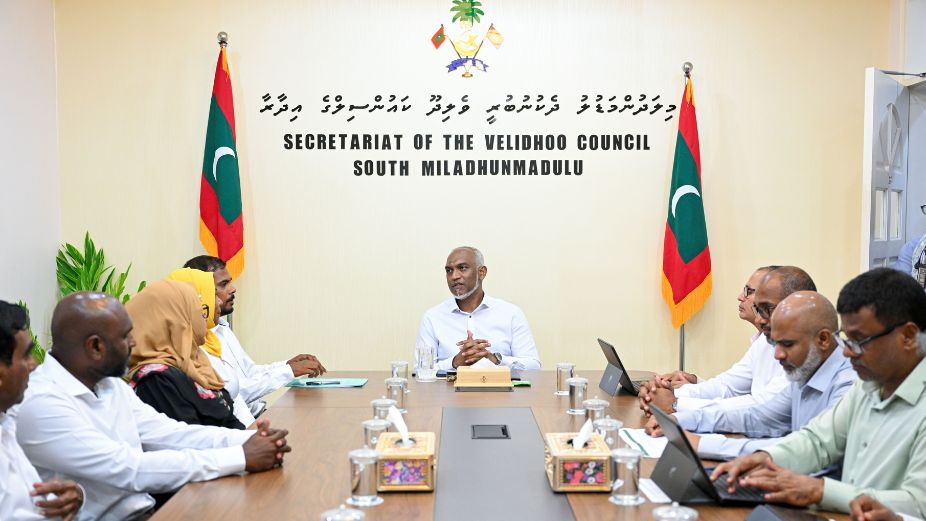
Under heavy criticism, the ruling People’s National Congress pushed through amendments to the Decentralisation Act on Wednesday, passing the bill with 51 votes in favour and just seven against. Despite objections from over 100 councils and all opposition MPs present, the government moved quickly, prompting backlash over what many see as a deliberate effort to sideline local governance.
At the centre of the controversy is a deeper philosophical divide about what it means to govern a nation of islands, whether decisions about land, employment, and development should come from Malé or from the islands themselves.
The government frames the amendments as part of a broader reform agenda to tighten fiscal discipline and improve transparency. Minister of Cities, Local Government and Public Works Adam Shareef argues that the changes strengthen institutional accountability and consolidate the decentralised system by empowering councils with clearer financial guidelines. According to him, the administration is expanding council authority by giving uninhabited islands to local jurisdictions, engaging directly with councillors during presidential visits, and supporting project modifications proposed at the local level.
But critics, including the main opposition Maldivian Democratic Party (MDP), see something very different. Fayyaz Ismail, Chairperson of the MDP, has publicly called on President Muizzu to refrain from ratifying the bill, calling it a “legal blueprint” for recentralisation. Speaking at the party’s national council meeting, he warned that the changes effectively silence local councils and limit their authority to act in the interest of their constituencies. Fayyaz promised that a future MDP government would reverse the changes and restore greater power to island councils.
His concern is echoed across the country. Councils from Kulhudhuffushi, Fuvahmulah, and L. Gan have formally opposed the bill. Their worry is not abstract. The amendments will bar councils from initiating new development projects, hiring staff, or leasing public land during the final year of their term unless the actions comply with procedures dictated by the Ministry of Finance and the Local Government Authority (LGA). Other changes restrict councils from operating businesses that overlap with private enterprises, unless they meet a high investment threshold of MVR 10 million and are deemed necessary for the local economy.
For councils with limited resources and narrow private sector interest on their islands, these new rules could mean fewer development initiatives, slower service delivery, and greater dependence on ministries in Malé. In addition, councils will be barred from charging rent on land allocated to public utilities like STELCO or Fenaka, and must submit financial details to the Finance Ministry on request.
The government claims that these safeguards are essential to prevent mismanagement and ensure responsible use of public funds. But the MDP contends that they are thinly veiled restrictions that strip elected councils of their autonomy. The timing and pace of the bill’s passage, within just two days, have also raised eyebrows, with Fayyaz accusing government lawmakers of ignoring widespread opposition and acting on “direct orders” from the President.
At stake is more than just legislative nuance. The 2008 Constitution enshrined decentralisation as a response to decades of over-centralised governance that left outer atolls under-served and under-represented. The Decentralisation Act of 2010, introduced by the MDP during its first administration, aimed to correct this by giving real power to local councils. The 2019 and 2020 amendments went further, granting councils access to a share of national revenues and increasing female representation through seat reservations.
These were not just administrative changes. They were democratic ones, designed to bring decision-making closer to people’s lives. The latest amendments, even if technically framed as reforms, have revived fears that local governance is being reduced to a symbolic function while real authority flows back to the capital.
Minister Shareef insists that the administration’s broader agenda includes rehabilitating 105 council buildings across the country and reinforcing councils’ financial capacity. But many fear that brick-and-mortar improvements cannot compensate for legal structures that dilute independence.
This is not the first time decentralisation has faced political headwinds. Under former President Abdulla Yameen, efforts to empower councils stalled. The reforms of 2019 and 2020 were seen as a course correction. If President Muizzu proceeds with ratification, the country may once again find itself debating not how to strengthen decentralisation, but whether it exists at all in practice.
For a nation defined by its geography, where needs vary island to island, one-size-fits-all governance has never worked. Decentralisation was meant to reflect this reality. To roll it back, however incrementally, is to risk losing the very principle that governance should be shaped not just from above, but from the ground up.











